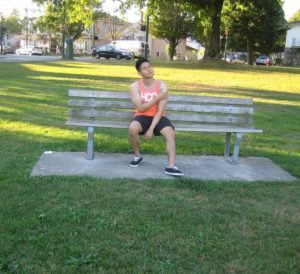A rotator cuff tear can range from minor to severe. The rotator cuff is a group of muscles and tendons that stabilize the shoulder joint. Once the individual moves the shoulder, the rotator cuff is used to stabilize and allow the joint the move.
What are the indications?
Not all cases of rotator cuff injuries trigger pain. Some might be due to degenerative conditions where the rotator cuff is damaged for months or even years before any symptoms manifest.
The usual symptoms that might arise include:

- Diminished range of shoulder movement
- Avoiding certain activities due to the pain
- Difficulty sleeping on the affected shoulder
- Tenderness or pain when reaching overhead
- Shoulder pain especially at night
- Difficulty reaching behind the back
- Progressive weakening of the shoulder
If any of these symptoms are present for more than a week or there is loss of arm function, a doctor must be seen.
Management of a rotator cuff tear
The treatment for a rotator cuff tear ranges from adequate rest to surgery. Early treatment can prevent the injury from progressing.
The conservative measures can help improve the symptoms in most cases of rotator cuff tear.
The commonly used treatment options include:
- Application of ice or heat on the affected shoulder to lessen the swelling
- Exercises to restore strength and range of motion
- Cortisone shot into the affected area to lessen the inflammation
- Adequate rest of the arm with a sling to limit arm movement
- Over-the-counter anti-inflammatory medications such as naproxen and ibuprofen
What is the outlook?
The outcome for a rotator cuff tear is based on the type of injury. Almost half of cases can recover with exercise and home remedies to lessen the pain and promote improved range of motion.
In severe cases, the shoulder strength might not improve unless the injury is corrected with surgery.
Quick Note / Disclaimer
The material posted on this page on a rotator cuff tear is for learning and educational purposes only. To learn to recognize the indications and how it is managed, register for a first aid and CPR course with Saskatoon First Aid.
